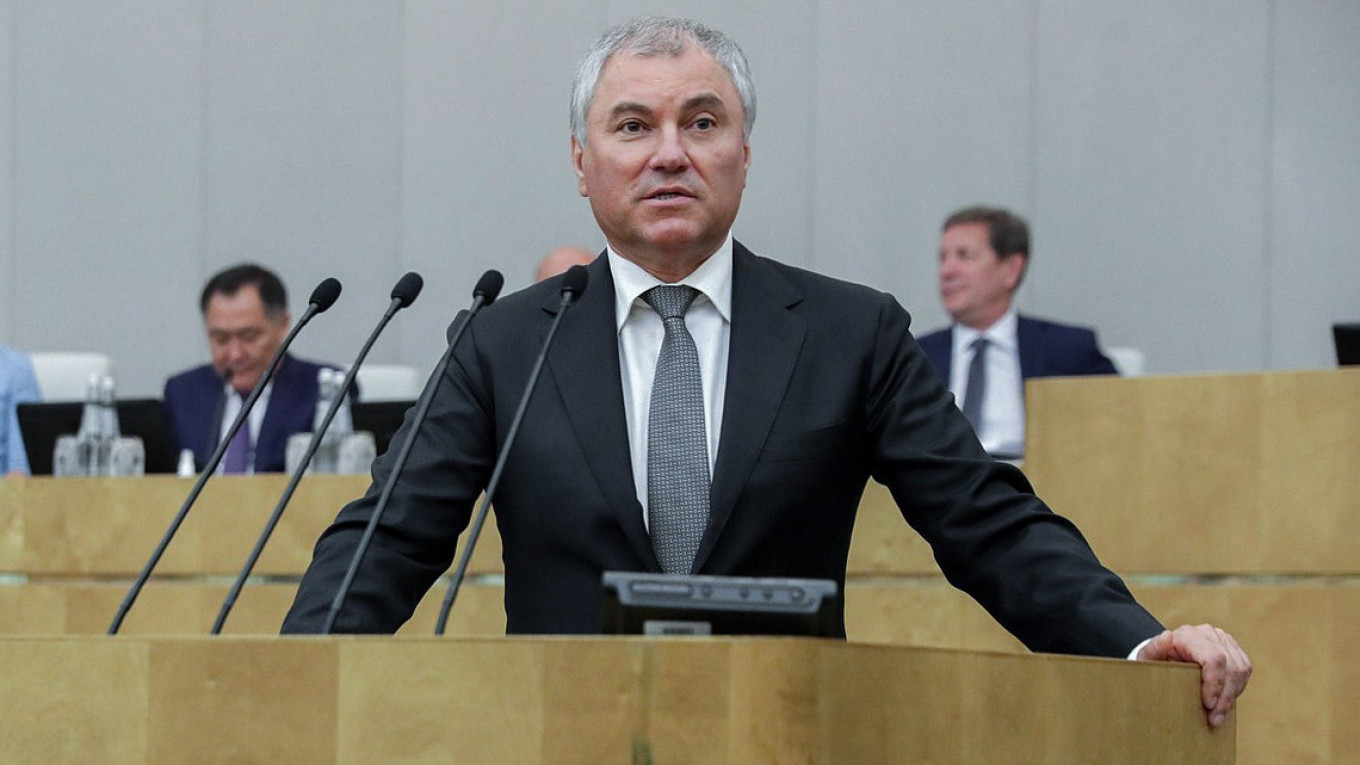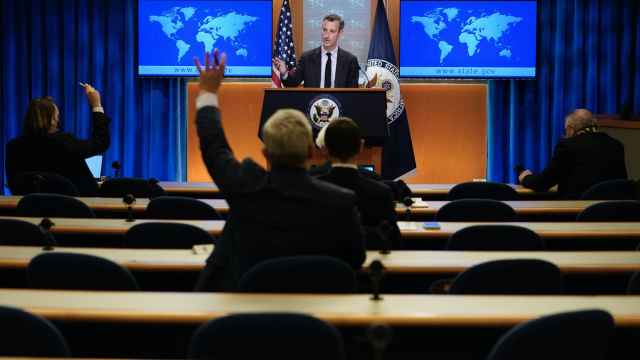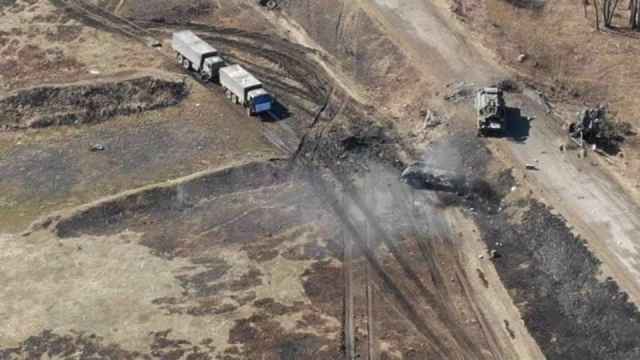The speaker of Russia’s lower house of parliament threatened Wednesday to “claim back” Alaska if the United States froze or seized Russian assets as punishment for its invasion of Ukraine.
“Let America always remember: there’s a piece of territory, Alaska,” Vyacheslav Volodin said at the last session of parliament, the State Duma, before it goes on summer break.
“When they try to manage our resources abroad, let them think before they act that we, too, have something to take back,” Volodin said.
He noted that deputy speaker Pyotr Tolstoy had proposed holding a referendum among Alaskans to join Russia.
“We don’t interfere in their domestic affairs,” Volodin responded, holding back laughter, after applause from State Duma deputies.
Volodin previously suggested that Moscow could also seize the Russian assets of “hostile” countries in retaliation to the U.S. proposal to sell of seized Russian oligarchs’ assets to rebuild Ukraine.
Russians are speculated to have first reached Alaska in the 1600s. Regular commercial fur trapping expeditions between Siberia and Alaska began in the 1740s, at which time Russian settlements began appearing on the Alaskan coast.
Russia sold Alaska to the United States in 1867 for $7.2 million, or roughly 2 cents per acre.
Also on Wednesday, ex-President Dmitry Medvedev took to social media to invoke the threat of nuclear war if the International Criminal Court (ICC) moved to punish Russia for alleged crimes in Ukraine.
The Kremlin warned of a “long crisis” in relations with Western nations last month as Russia’s military campaign to seize territories in Ukraine entered its fourth month.
“We will never trust the West again,” President Vladimir Putin’s spokesman Dmitry Peskov said in an interview at the time.
A Message from The Moscow Times:
Dear readers,
We are facing unprecedented challenges. Russia's Prosecutor General's Office has designated The Moscow Times as an "undesirable" organization, criminalizing our work and putting our staff at risk of prosecution. This follows our earlier unjust labeling as a "foreign agent."
These actions are direct attempts to silence independent journalism in Russia. The authorities claim our work "discredits the decisions of the Russian leadership." We see things differently: we strive to provide accurate, unbiased reporting on Russia.
We, the journalists of The Moscow Times, refuse to be silenced. But to continue our work, we need your help.
Your support, no matter how small, makes a world of difference. If you can, please support us monthly starting from just $2. It's quick to set up, and every contribution makes a significant impact.
By supporting The Moscow Times, you're defending open, independent journalism in the face of repression. Thank you for standing with us.
Remind me later.






